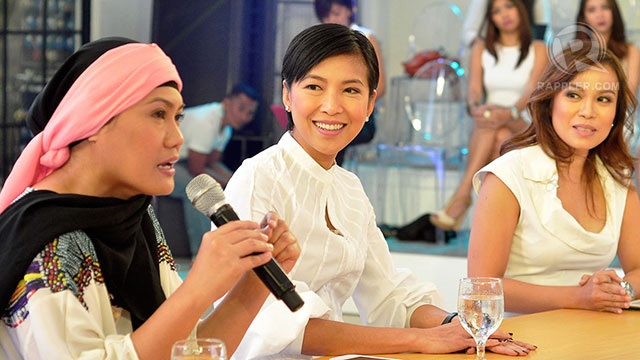SUMMARY
This is AI generated summarization, which may have errors. For context, always refer to the full article.

MANILA, Philippines – Despite a narrowing gap between men and women in the Philippines, double standards and gender bias dominate attitudes towards women even in progressive Metro Manila.
Bea Cupin reports.
G TONGI, RAPPLER CONTRIBUTOR: People told me: ‘she’s too ambitious.’ Like it’s a bad thing.
Six driven, passionate, empowered women take off from a survey on urban views on women.
Metro Manilans are perceived to be more liberated but a survey says stereotypes persist. The survey says Metro Manilans believe women who work tend to be pushy and women need to downplay their personality to be accepted. But is pushy a bad thing?
SAMIRA GUTOC , FORMER ARMM ASSEMBLYWOMAN: Sometimes it’s positive, negative. But sometimes I do feel the sense that hey do take it negatively, the guys. When you have so much in mind and you share it. Pushy becomes aggressiveness and aggression means negativity.
The unemployment rate in the Philippines rose in July this year. Despite the country’s strong economic growth and investment grade status. The survey says when jobs are scarce, Filipinos believe men deserve employment more than women. But one panelist argues: there’s a shift in the workplace.
KARRIE ILAGAN, MICROSOFT PHILIPPINES MANAGING DIRECTOR: Whether you’re male or female, your achievement could only be limited by where you want to take your career. A big part of it is the societal shift of perception that men and women are just equal. Today’s society is really about competence.
Survey respondents doesn’t reflect that view, especially when it comes to education. Most believe that it’s more important for men to get a college degree. Chinese International School Manila founder Felicia Atienza says the bias is rooted on culture.
FELICIA ATIENZA , CHINESE INTERNATIONAL SCHOOL MANILA FOUNDER: We are a matriarchal society. Being women, we are always giving, sacrificing. We’re the ones caring, nurturing and when push comes to shove, we’ll say: okay, we’ll let the man have it.
Education, says one panelist, empowers.
GISELLE TONGI-WALTERS, RAPPLER CONTRIBUTOR: As more women are more educated, they learn that they have rights to their bodies, especially with reproductive health.
While the scale has tipped, less than half of Metro Manila residents say women should sacrifice her career for family. Artist Nikki Luna reminds the audience – women in poor communities often do not have a choice.
NIKKI LUNA, ARTIST: Not everyone has a choice. Every just has to survive and thrive. Some women have to be in that position not because they have a choice. And a lot of our social norms like gender roles are based on religion, culture, influences, structure. I’m just saying not everyone can apply that to themselves especially the marginalized because they’re been trapped by religion. Especially here in our country, it’s very very patriarchal.
It’s still a man’s world out there but women continue to push the glass ceiling.
Bea Cupin, Rappler, Manila. – Rappler.com
Add a comment
How does this make you feel?
There are no comments yet. Add your comment to start the conversation.